Many delegates agreed on the need for clear decentralization, delegation, and authorization to avoid pushing matters to the Prime Minister. If there were no regulations, even the release of water from a hydroelectric reservoir to save agriculture would require the Prime Minister's approval.
Unclear division of powers will hinder production and economy.
On the morning of February 14, continuing the 9th extraordinary session, the National Assembly discussed in the hall the draft Law on Government Organization (amended).
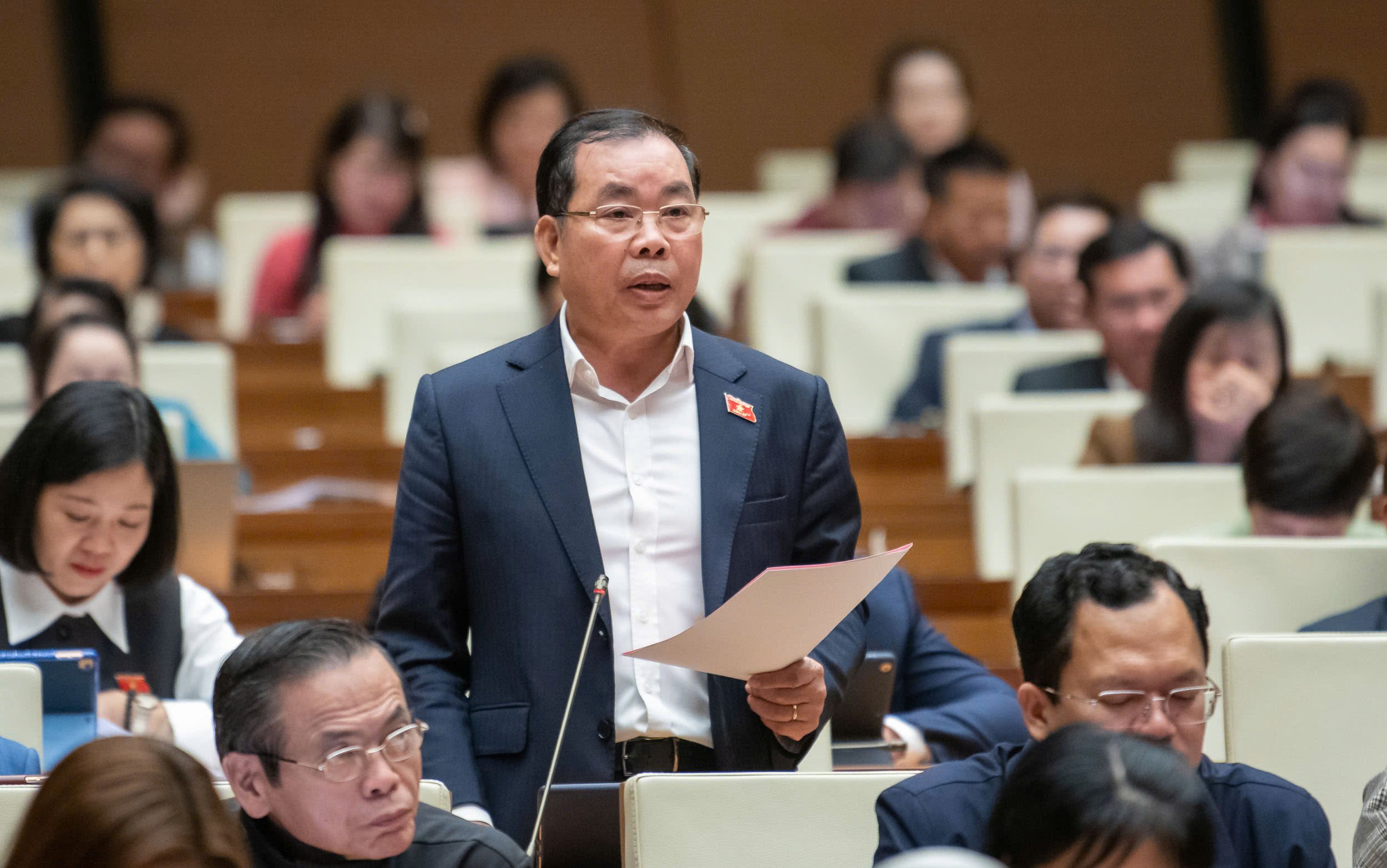
Delegate Nguyen Quang Huan (Binh Duong delegation) contributed comments.
Speaking at the parliament, delegate Nguyen Quang Huan (Binh Duong delegation) said that when localities do things, they are responsible, but if they do not specify what work is for the locality to do, it will cause problems in management.
He gave an example in the implementation of the Planning Law, recently some localities established provincial planning, but left out many units such as some water plants operating in the area. When they are not included in the planning submitted to the Prime Minister, water plants that want to expand cannot, and if they want to adjust, they must submit to the Prime Minister.
Therefore, according to him, the lack of clear division of powers between the Prime Minister and localities makes management difficult in practice, greatly hindering production and the economy.
According to the delegate, local economic activities decided by the Provincial People's Council should belong to the locality. At that time, the Chairman of the Provincial and District People's Committees has the right to decide, "but if we touch the planning and submit it to higher levels, it will be very difficult".
Or in decentralization, delegates proposed to clarify that the Prime Minister only decides on inter-ministerial, inter-sectoral issues or large projects.
"If there are no regulations, many operational issues such as operating a hydroelectric reservoir must also seek the Prime Minister's opinion.
In times when agriculture needs hydroelectric reservoirs to release water to save agriculture, the Prime Minister's opinion must be sought. Meanwhile, specialized ministries must grasp it firmly and clearly," according to delegate Huan.
Assessing management capacity before decentralization
Also concerned about the issue of decentralization and delegation of power in the draft law, delegate Tran Van Khai - Standing Member of the Committee on Science, Technology and Environment said that this is an inevitable trend but it is necessary to have a strict control mechanism, supplement regulations on monitoring and evaluating local capacity and accountability as important factors to avoid overlapping and power fragmentation.
"If not adjusted properly, it will cause stagnation, lack of synchronization and reduce the effectiveness of state management," said delegate Khai.
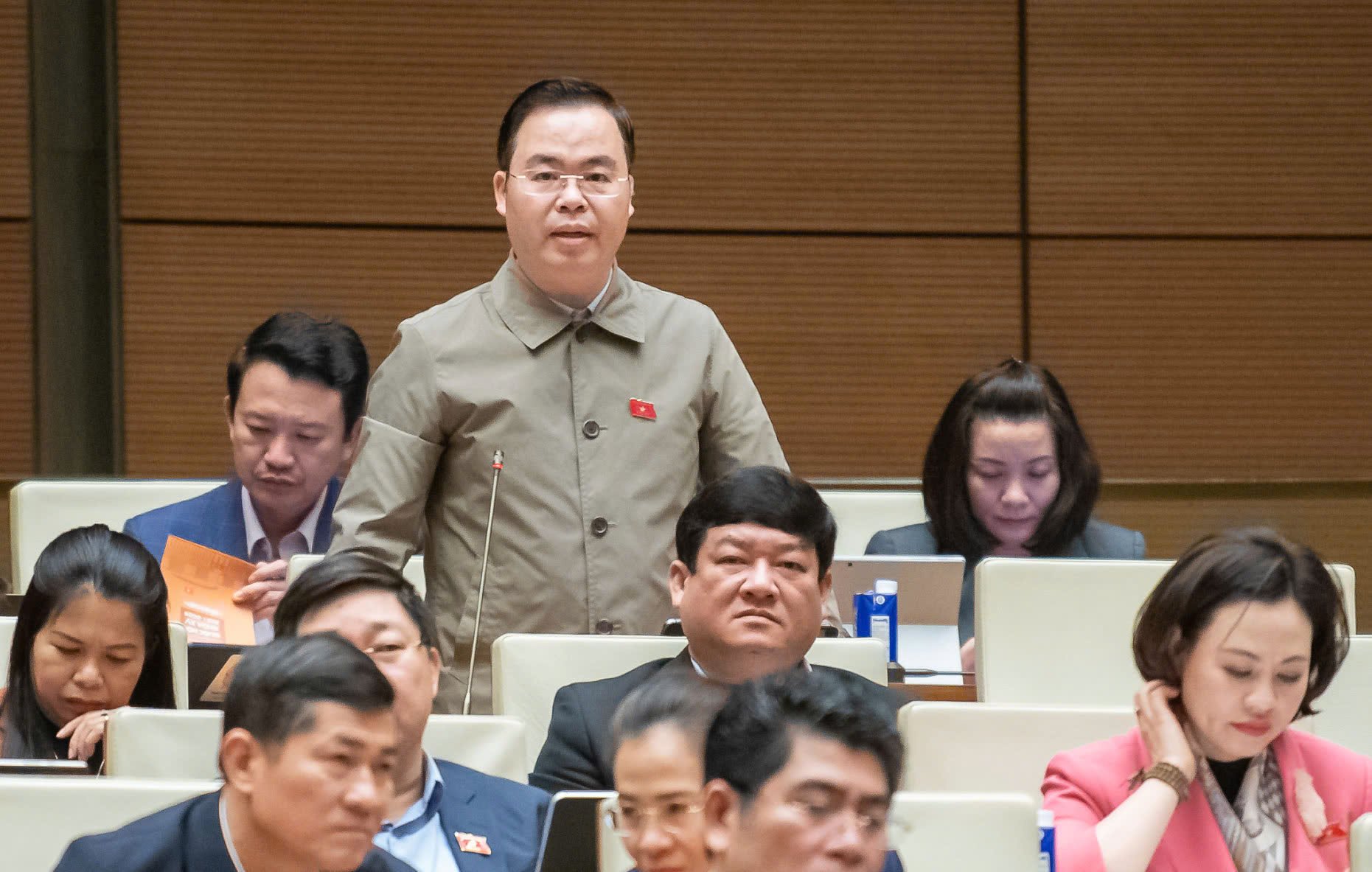
Delegate Tran Van Khai - Standing Member of the Committee on Science, Technology and Environment spoke at the parliament.
Delegates spent a lot of time analyzing and clarifying the possibility of overlapping and fragmentation of power when applying decentralization (Article 7), decentralization (Article 8), and authorization (Article 9) in practice.
Regarding decentralization, delegate Khai pointed out that if decentralization is not clear, it can lead to overlap between the central government and local governments. Some important tasks (planning, public investment, land and environmental management) can be both the responsibility of the government and the authority of local governments.
If the Central Government still retains the right to make decisions but hands over implementation to localities without clear responsibilities, it may lead to lack of synchronization and stagnation in implementation.
Therefore, according to him, we should add the principle of "conditional decentralization", which means decentralizing only when the locality has sufficient financial, human, and administrative capacity, and building an index to assess the administrative capacity of each locality before decentralizing.
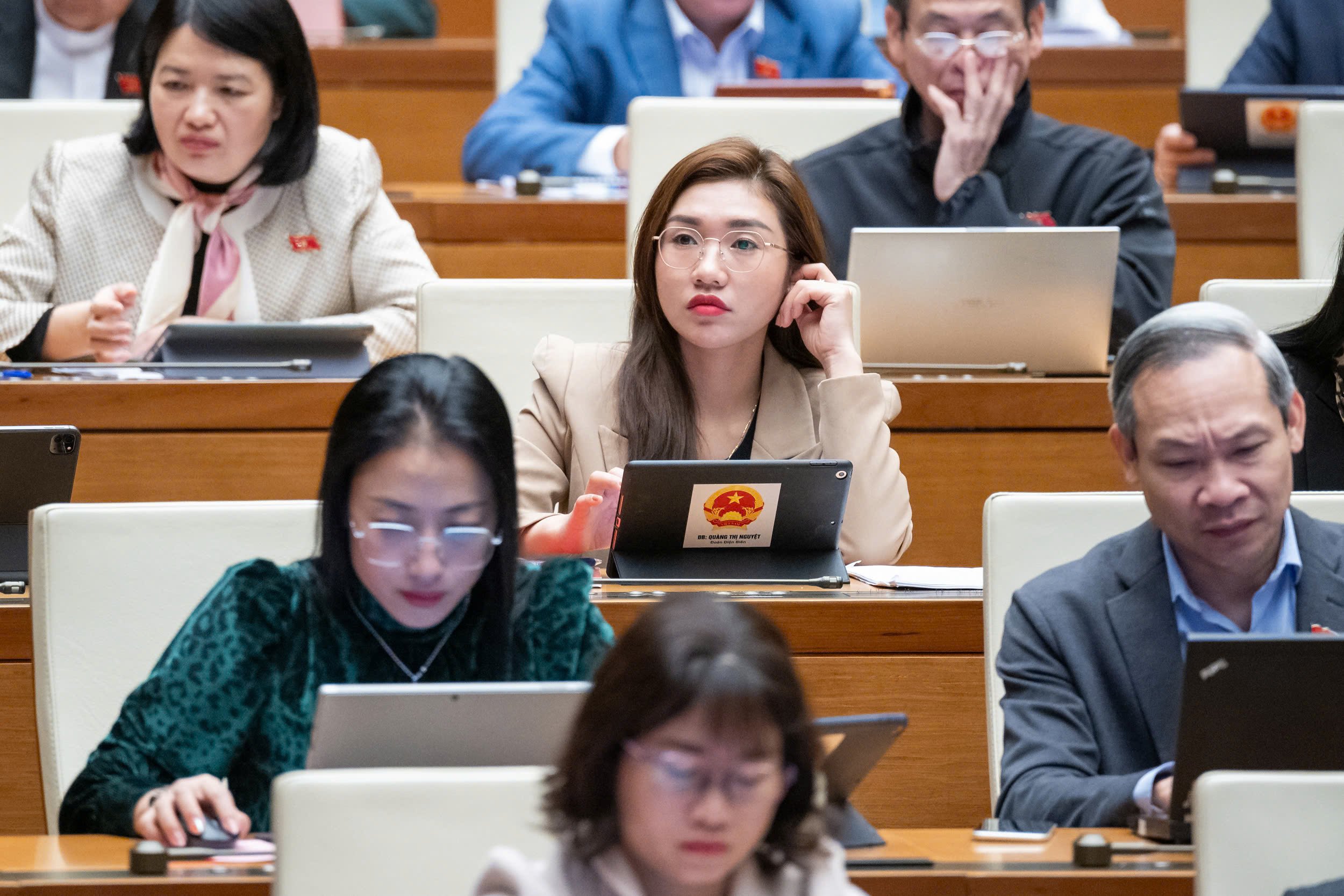
Delegates follow the discussion session.
Regarding decentralization, delegates said that the lack of a strict monitoring mechanism could lead to abuse of power.
Many tasks can be managed by both ministries and localities (e.g. urban management, public investment, transport infrastructure). Without a mechanism to evaluate the effectiveness of decentralization, it can lead to delegation of authority without sufficient conditions for implementation, causing waste and stagnation.
Furthermore, if decentralization is too strong, it may cause localities to make decisions that are not in sync with the Central Government.
Therefore, delegates proposed adding a mechanism to "assess the effectiveness of decentralization" such as clearly defining which tasks require annual assessment reports. Decentralization decisions must be periodically monitored by the National Assembly.
At the same time, applying the principle of "flexible decentralization" to localities that do not have enough capacity, there should be strict control sanctions instead of delegating all authority.
Regarding delegation, according to delegate Khai, if delegation lacks control, it can cause responsibility to be pushed between levels of government.
When a task is delegated without a mechanism to bind responsibility, it is possible that subordinates do not perform or perform ineffectively. Some important tasks (approving public investment projects, granting construction permits, etc.) if delegated without control can lead to corruption and negativity.
Therefore, he proposed to limit the scope of delegation, only delegating routine administrative tasks, not delegating tasks of deciding macro policies.
At the same time, accountability needs to be added. The authorized agency must periodically report to the authorizing agency and prescribe personal responsibility if the authorized task is performed incorrectly.
There needs to be a clear mechanism to protect those who dare to think and dare to do.
Participating in the discussion, delegate Pham Van Hoa (Dong Thap Delegation) said that in decentralization and delegation of power, there must be a specific mechanism. If not included in the law, it must be included in the regulations so that those who are delegated, authorized and given authority dare to do and take responsibility for that work.
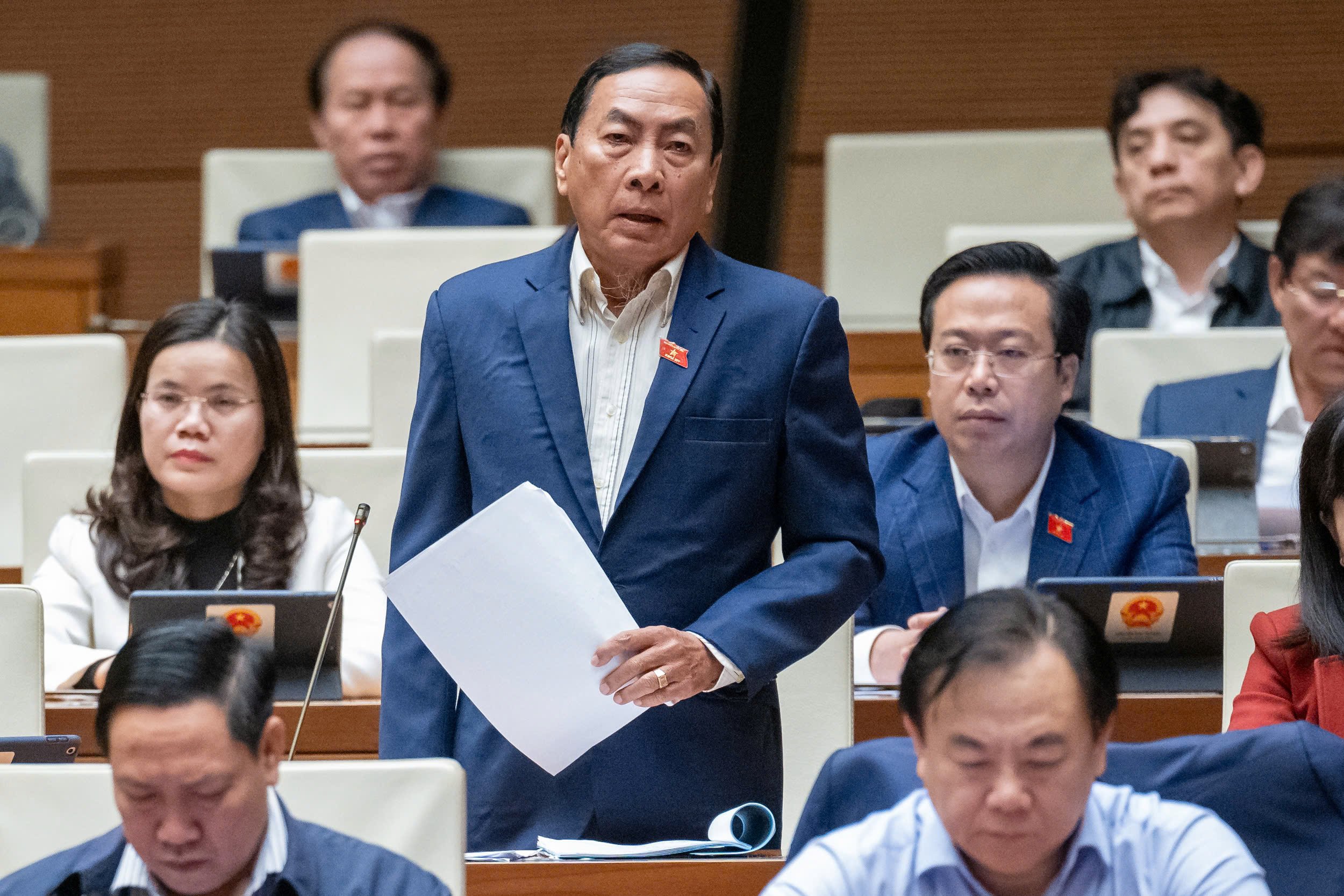
Delegate Pham Van Hoa (Dong Thap delegation) gave comments at the parliament.
"Of course, when calling for a charge, one must go into battle. In battle, there must be sacrifices, but if there are sacrifices, the leader and flag bearer must be dealt with, which is not really objective.
Unless the leader has group interests or is corrupt, it must be dealt with. As for objective issues related to work and impatience in work, it must be fought. To achieve goals and requirements, the mechanism needs to be clear," said delegate Pham Van Hoa.
According to him, the law has provided such a framework, so the decree must be clear, specific, and easy for people to implement.
In addition, the delegate also requested that the person delegating authority must be responsible for checking, supervising, and inspecting the delegated or authorized person; when the delegated or authorized person does not perform the assignment or authorization correctly, the delegated or authorized person must also bear joint responsibility.
Creating an important legal corridor
Receiving and clarifying the decentralization, delegation and authorization in the draft law, Minister of Home Affairs Pham Thi Thanh Tra said that this is a core, fundamental issue with the most innovative thinking when amending the law this time.
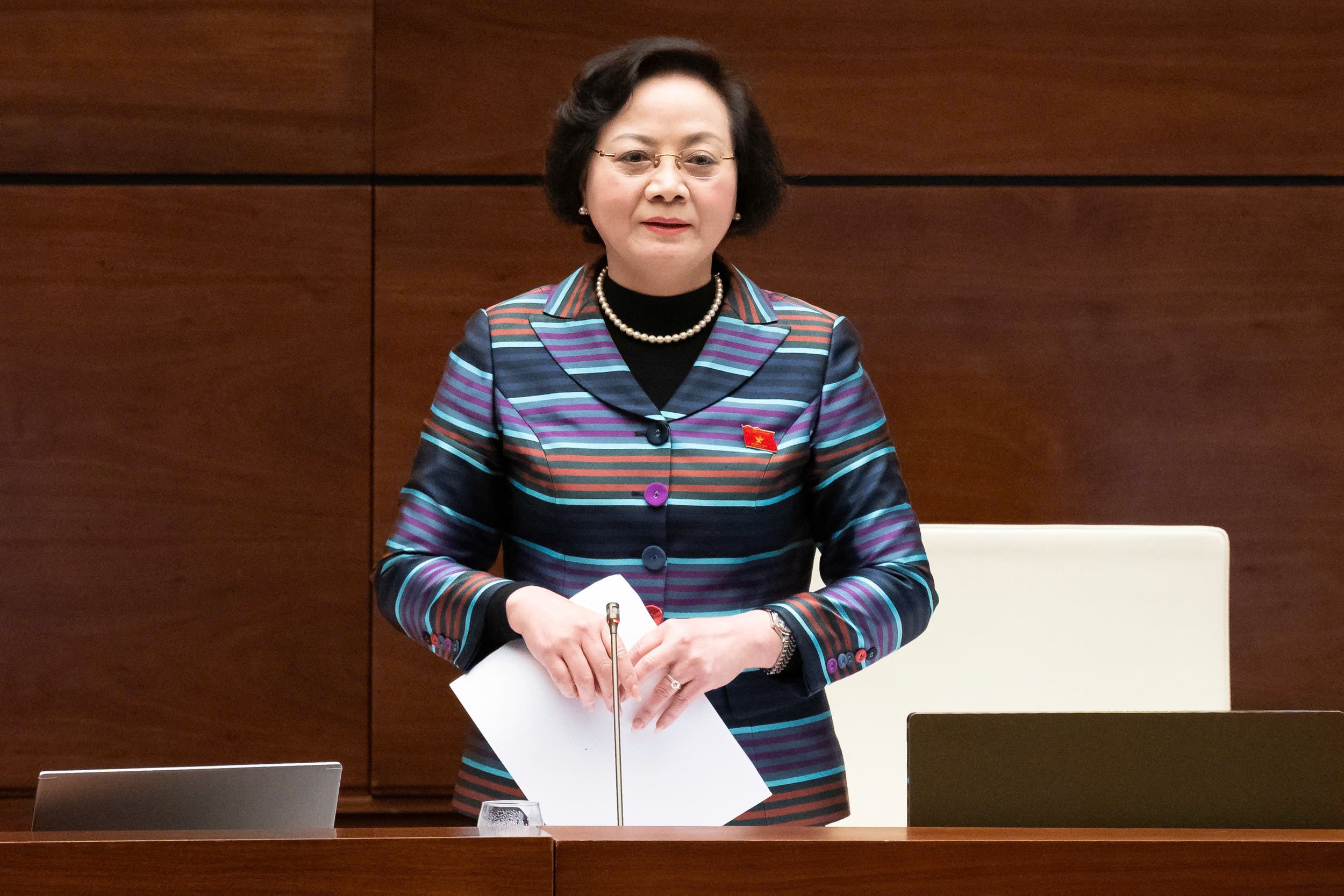
Minister of Home Affairs Pham Thi Thanh Tra further clarified the contents raised by the delegates.
The bill completes the principles of decentralization, delegation and authorization according to the Constitution and Party policies.
From there, create initiative and creativity to promote the spirit of autonomy and self-responsibility of the State administrative system, especially local authorities. At the same time, create an important legal corridor to remove barriers to decentralization, delegation and assignment of specific tasks that currently exist in specialized laws.
"Recently, following the direction of the Central Government and the National Assembly, we have conducted a review to implement decentralization and delegation of power, and have discovered very difficult points.
Why can't we decentralize and delegate power? Because specialized laws clearly define the authority, duties, and powers of ministers.
Reviewing 257 laws, there are 177 laws that specifically regulate this content. At the same time, the responsibilities of the Prime Minister and People's Councils at all levels are clearly regulated... This is an overlap, making it difficult to implement decentralization and delegation of power...", the Minister explained specifically.
Minister Pham Thi Thanh Tra affirmed that specialized laws must follow the principle that the Law on Government Organization is the original law of the State administration to implement decentralization, delegation, and clarify the objects, subjects, scope, and content at different levels.
At the same time, the bill also stipulates a very important provision: Ministers and heads of ministerial-level agencies must base on this principle to implement the provisions on decentralization, delegation and authorization when drafting legal documents.
Source: https://www.baogiaothong.vn/phan-cap-phan-quyen-ranh-mach-khong-de-viec-nho-cung-day-len-thu-tuong-192250214115431178.htm




![[Photo] Dan Mountain Ginseng, a precious gift from nature to Kinh Bac land](/_next/image?url=https%3A%2F%2Fvphoto.vietnam.vn%2Fthumb%2F1200x675%2Fvietnam%2Fresource%2FIMAGE%2F2025%2F11%2F30%2F1764493588163_ndo_br_anh-longform-jpg.webp&w=3840&q=75)












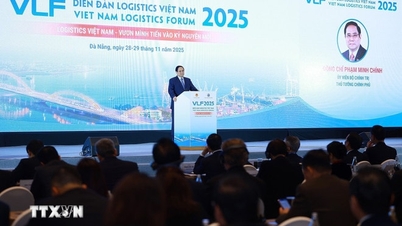

























































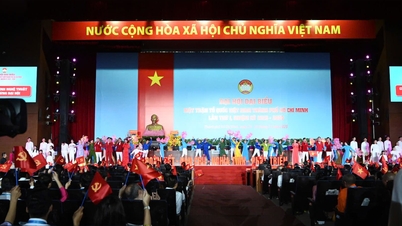






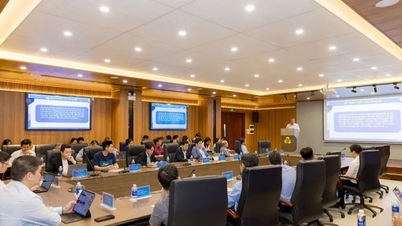
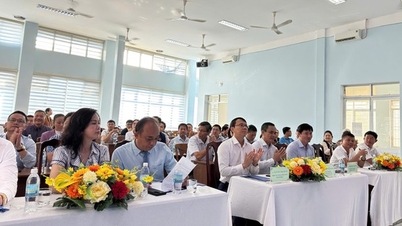
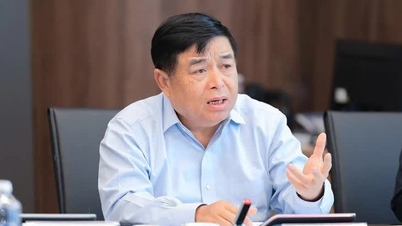




















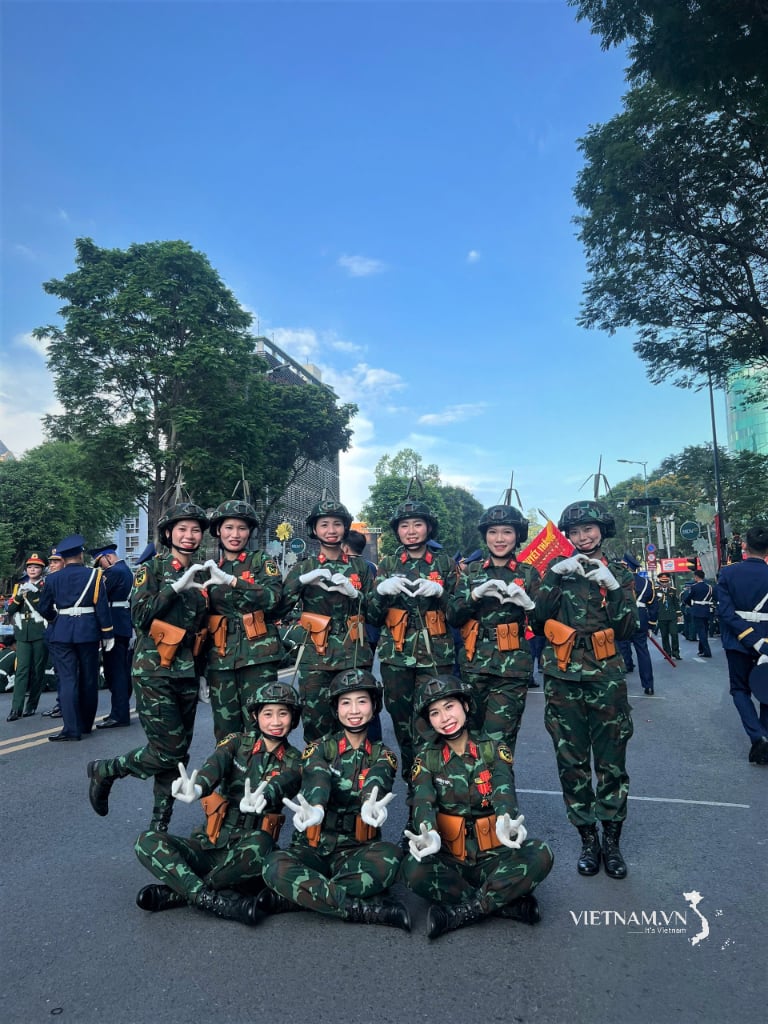


Comment (0)